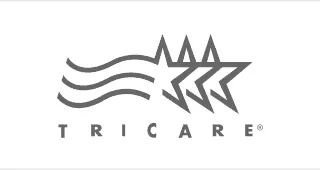What is Dialectical Behavior Therapy?
Dialectical behavioral therapy is a certain kind of cognitive behavioral therapy. This type of care aims to treat those dealing with co-occurring mental health disorders (commonly referred to as dual diagnoses). Some of these mental health disorders include the following:
- Depression
Anxiety- Bipolar disorder
PTSD- Substance use disorder
This method of therapy is used to evaluate the “why?” behind an individual’s actions. In substance abuse treatment, it’s meant to teach those who suffer from addiction to be present in the moment. In addition to this, dialectical behavioral therapy teaches those who participate healthy coping mechanisms for when they experience any sort of triggers. All in all, helping people improve their behaviors and relationships with others is the goal.
How Did Dialectical Behavioral Therapy Begin?
Dialectical behavioral therapy began as a form of care for those who were suffering from a borderline personality disorder. These days, however, it has evolved into a method of treatment that helps a plethora of other mental health disorders. For example, sometimes a person may have a hard time regulating their emotions; either that or they’re being self-aware enough to know what they’re struggling with and how to cope with it.
Sometimes a person may not recognize their self-destructive behaviors. This is why dialectical behavioral therapy is imperative for treating mental health disorders. This is especially true when a person suffers from more intense mental health disorders like PTSD. However, dialectical behavioral therapy shouldn’t always be done alone. Most often, dialectical behavioral therapy is done alongside other forms of treatment. This approach helps a lot with those who suffer from a substance use disorder.
How Does Dialectical Behavioral Therapy Factor Into Substance Abuse Treatment?
Substance use disorder is a difficult animal to tame. This is because addiction is usually motivated by emotional dysfunction and distortion of necessity. Some emotional dysfunction that is experienced is largely considered to be destructive behavior.
When a person is suffering from a drug and alcohol addiction, their quality of life begins to diminish severely. This is due in large part to the emotional, physical, relational, and mental impact the disease has on a person. As a result, those who suffer from addiction have a hard time remaining stable. Sooner or later, it bleeds into their professional lives as well as their relationships and self-care.
The Anatomy of Dialectical Behavioral Therapy
Dialectical behavioral therapy is quite a complex form of therapy. For example, in this form of therapy, there is a process called dialectics. Dialectics is a philosophical process of two contradicting points of view identified to resolve said conflict. In the case of dialectical behavioral therapy, the two contradicting points of view are typically the therapist and the patient. Therefore, the therapist and the patient will work together to come to an understanding (though one-sided as it may be).
Where Do Dialectics Come From?
Dialectics come from a few different ideas that include the following:
- Change is inevitable
- Change occurs often in life
- Everything relates to each other
- Opposing perspectives are okay
Dialectics is a way for people with opposing perspectives to move closer to a place of truth and certainty. However, dialectics shouldn’t be all about progress. Yes, progress is good, but not at the expense of a person’s emotions. In fact, if a person’s emotions are depleted in the name of progress, it’s actually more attune to regression.
Validation on its own, however, is just as destructive as progress for the sake of progress.
Don’t hear us the wrong way, validation is imperative in the treatment of mental health disorders. However, it’s when the ideal of progress is paired with validation that success occurs.
How Does Dialectical Behavioral Therapy Work?
Dialectical behavioral therapy works by helping a person understand themselves and make sense of their behaviors in different environments. Typically, there are three different approaches to the practice of this form of treatment. These three different approaches include the following:
- Individual therapy
Group therapy- Virtual therapy sessions
In dialectical behavioral therapy programs, the facilitator of the therapy session (a licensed mental health professional) will meet with a team to determine the best course of action. Whatever they decide will largely depend on the individual’s needs.
Are There Benefits of Dialectical Behavioral Therapy?
There are many benefits to attending a dialectical behavioral therapy program. However, each case has its own goals and ways to go about achieving those goals. One of the many benefits it does offer, no matter the individual, is making the chance of relapse less likely. There are many ways dialectical behavioral therapy can do this for a person.
Depending on the circumstance and the specific case, this form of therapy can help a person improve. Some ways that dialectical behavioral therapy helps in the context of a substance use disorder include the following:
- Decrease in frequency of use/abuse
- Encouraging healthy decision making
- Reducing cravings
- Providing people with alternative safe coping mechanisms
- Alleviating the symptoms of withdrawal
- Discouraging negative behaviors
- Abstaining from hanging around individuals, being in areas, or participating in activities that lead to substance abuse
There are many ways dialectical behavioral therapy can benefit those suffering from substance abuse or a mental health disorder. Some of these benefits are reason enough for a person to participate in dialectical behavioral therapy.
What Are The Benefits of Dialectical Behavioral Therapy?
Some benefits of dialectical behavioral therapy include the following:
- Reorienting negative beliefs, emotions, thoughts, or actions.
- Replacing negative coping mechanisms or other behaviors with more positive ones.
- Communication skill development.
- Recognizing strengths and weaknesses.
- Becoming more self-aware.
- Learning new skills.
- Learning how to adapt to change and negative circumstances.
Learn More About Dialectical Behavioral Therapy
Treatment for substance use disorder is difficult to find, and it can often feel overwhelming. At Achieve Wellness and Recovery, we aim to treat the individual needs of each patient that walks through our doors. Our professional staff desires to provide the utmost in professional care.
Nobody deserves to have to walk through their struggles alone. That’s why we want to walk with you every step of the way. Dialectical therapy may be the right approach for your mental health condition, or the condition of a loved one. Either way, at Achieve Wellness, we are available to take your call. If you or a loved one would like to find out more, you can contact us here.
We work with most insurance companies. Please note we are not affiliated with or endorsed by insurance companies.
No Medicaid Accepted.


















